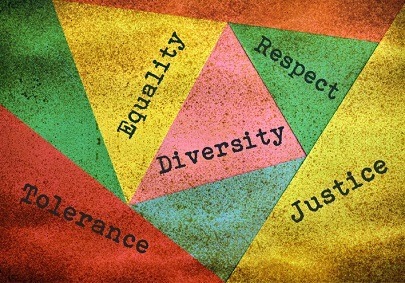
CREDIT: This story was first seen in Tes
Twice as many black and minority ethnic teachers have experienced discrimination at work compared to white counterparts, according to report by NASUWT and the Runnymede Trust, Tes reports.
“Deep-rooted, endemic and institutionalised” racism in the education system is “blighting” the lives of black and minority ethnic teachers, according to a new report.
Research has found that BME teachers are twice as likely to have experienced workplace discrimination compared to white colleagues, and more likely to have suffered ill health as a result of work and to have considered quitting the profession.
According to the Visible Minorities, Invisible Teachers report, co-authored by the NASUWT teaching union and the Runnymede Trust, “everyday racism” remains commonplace in schools, with BME teachers facing “discrimination, harassment, ostracism, lack of pay progression, and…being held back from promotion”.
An NASUWT poll of approximately 12,000 teachers conducted last year found that BME teachers share the same commitment and passion for teaching as their white colleagues.
Over 80 per cent of BME and white teachers agreed that their main motivation for teaching was interacting with pupils, seeing young children progress, teaching others and making a positive difference.
However, the experience of BME and white teachers in the workplace differed significantly.
Twice the proportion of BME teachers reported they had experienced discrimination at work in the last 12 months (31 per cent) compared to their white counterparts (15%).
A higher proportion of BME teachers (79% compared to 64%) believed they were not paid at a level “commensurate with their skills and experiences”, and 64% of BME teachers had experienced “verbal abuse by pupils” compared to 51% of their white peers.
The survey found that BME teachers also have less confidence in being supported by their school’s management, with over half (52%) reporting that they felt that they were not viewed as professionals by school management, compared to 38% of their white colleagues.
The report suggests the negative treatment of BME teachers has knock-on consequences for the rest of their life, with 38% reporting poor health as a result of their work, compared to 25 per cent of white teachers.
Almost two-thirds of BME teachers (64 per cent) are unsatisfied with their job compared to 58% of their white peers, and a higher proportion of BME teachers have considered leaving the profession (75% compared to 64% of white teachers).
The report highlights underrepresentation of BME individuals in school leadership positions and a growing gap between a homogenous teaching workforce and an increasingly diverse pupil population. For example, in the North East, the proportion of BME pupils is up to eight times more than the BME teachers in the area.
In 2015, 7.6% of the teaching workforce was “non-white”, the report states.
Chris Keates, general secretary of NASUWT, said schools and pupils were “losing out on the talents and skills of BME teachers” as a consequence of them being “held back by racial prejudice and discrimination”.
She called for a “national conversation about racism in the education system” and a commitment from the government and other players “to break down and root out racial discrimination”.
Zubaida Haque, research associate at the Runnymede Trust, said BME teachers were “running into closed doors at almost every step of the way” in the teaching profession.
She added: “What kind of signal does it send to the British public and to the next generation of adults if trusted school leaders are indicating that there are different rules and opportunities for teachers from different ethnic backgrounds in the education system?”
Don’t forget to follow us on Twitter, like us on Facebook, or connect with us on LinkedIn!


Be the first to comment